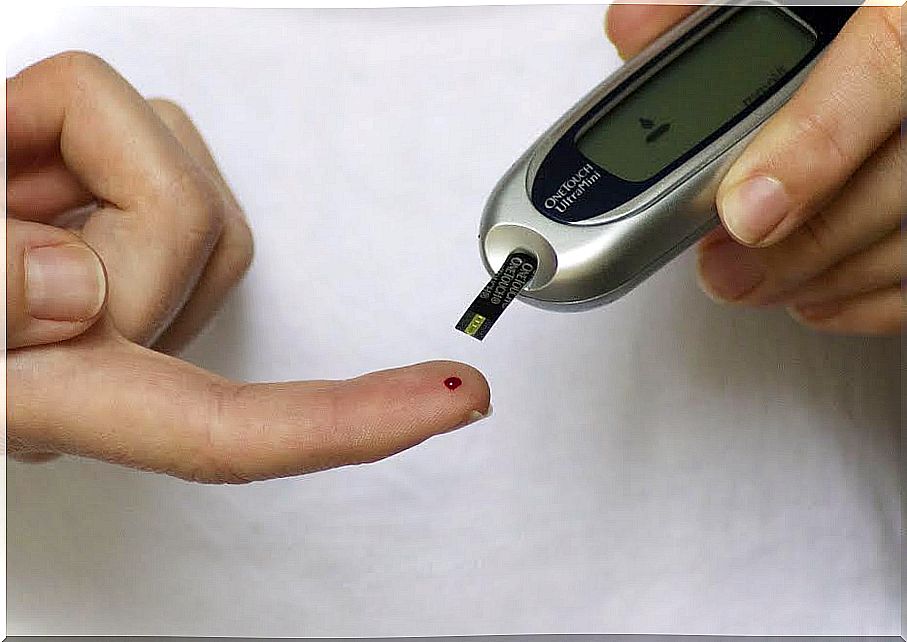What Is Gestational Diabetes?

In this post we will talk about one of the conditions that can occur during this stage, glycosuria or gestational diabetes. What is it and how does it affect us?
When you are pregnant, some conditions or diseases have the possibility of manifesting themselves in our body and we may be more prone to developing some than others.
During pregnancy, a woman’s body is revolutionized. The hormones start to do their thing. A new life begins to grow and with it comes important changes.
An alteration or health condition during the sweet wait is what we least wish for. We want everything to go perfectly, that is why it is vital to recognize when something is not working well in our body beyond the symptoms of pregnancy.
The recognition in time of a discomfort or effect, in addition to an immediate consultation with your gynecologist, can really make a difference so that our life and that of the baby are not in danger.
It is important to be attentive to all the signals that our body provides during pregnancy to avoid risks at all costs.
What You Should Know About Gestational Diabetes

There are multiple disorders that can arise while we are waiting for a baby and one of them is gestational diabetes. But what is this? Does it affect my baby? How can I know if I have this condition? We will answer this and more below.
Gestational diabetes occurs only during pregnancy and is characterized by very high blood sugar or glucose levels. This type of diabetes, which generally appears in the third trimester, can bring a series of complications that manifest themselves in pregnancy and at the time of delivery.
In most cases, gestational diabetes usually goes away after the baby is born, but in some cases it can lead to type 2 diabetes later in life.
Experts assure that between 2% and 10% of pregnant women can develop this disease, which is why it is considered quite common In this phase.
The vast majority of women with this type of diabetes have healthy babies, without any consequences, if corrective measures are taken on time. That is why it is important to take some prevention measures such as feed properly and practice a physical activity recommended by the doctor.
What happens in my body if I have gestational diabetes?

The growth and development of the baby in your womb involve a significant expenditure of energy, especially in the last period of pregnancy.
Your child will begin to demand a large amount of the reserves you have in your body, including glucose , about 50%. When you feed yourself, your body assimilates part of these foods to convert them into glucose and that sugar is nourished by the cells for energy.
Later, in order for the cells to process that glucose, they require a hormone called insulin that is produced through the pancreas. Cells may not respond to insulin in pregnancy due to the large number of hormonal changes.
In addition, the pancreas is normally prepared to produce more, but this may not happen, blood sugar levels rise and gestational diabetes occurs.
Symptoms of gestational diabetes
Gestational diabetes generally does not present any symptoms and that is why all pregnant women are tested.
This test is known as the glucose tolerance test or O’Sullivan’s test and consists of determining the level of glycemia in the blood after consuming 50 grams of sugar. If it returns a level equal to or greater than 140, the result for gestational diabetes is positive.
Although most pregnant women do not show any signs if they are affected by this disease, there are some signs to which we must pay special attention and go to our doctor:
- Increased feeling of frequent thirst
- Fatigue
- Blurry vision
- Increase in urination
- Nausea and vomiting
Risk factor’s
Gestational diabetes is usually present in the body only during pregnancy, but there are some factors that make a woman more likely to develop it:
- Being overweight or obese
- History of gestational diabetes in a previous pregnancy
- Arterial hypertension
- Ovary syndrome polycystic
- Family history of diabetes
- Age over 35 years
If you notice or experience changes that could indicate that something is wrong, it is best to consult your trusted doctor as soon as possible. The control and treatment on time will guarantee your well-being and that of your baby.









